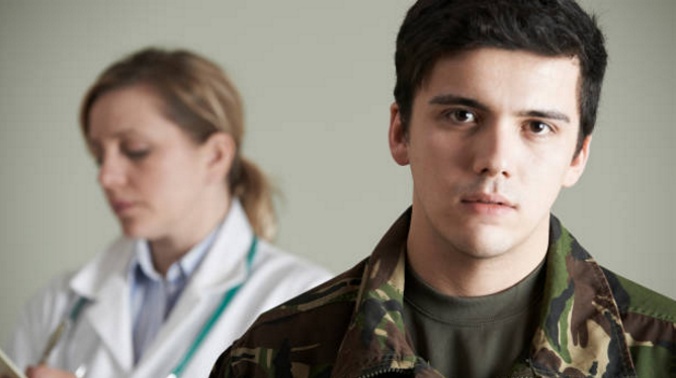Every day across the U.S., an average of twenty veterans take their own lives. Most of these suicides are related to post-traumatic stress disorder (PTSD) or traumatic brain injury (TBI), two conditions for which medical cannabis treatment has shown promising results in states where it is legal. This point is not lost on Veterans Affairs Secretary David Shulkin.
During his recent “State of the VA” address, Shulkin announced his support for expanding access to medical cannabis but admitted that his hands are tied by federal laws. Under the current policy, VA doctors are unable to prescribe or even discuss medical marijuana with their patients. Shulkin, a former physician himself, stated:
“Right now, federal law does not prevent us at VA to look at that as an option for veterans. I believe that everything that could help veterans should be debated by Congress and by medical experts and we will implement that law.”
In referring to the number of suicides, Shulkin added, “That should be unacceptable to all of us. This is a national public health crisis, and it requires solutions that not only the VA will work on but all of government and other partnerships in the private sector, nonprofit organizations.”
American Legion Urges Change
Addiction to prescription painkillers is a major issue for veterans. Last year alone, the VA treated almost 70,000 ex-service members for opiate addiction. Opiate abuse has been linked to higher rates of suicide among veterans. Medical marijuana advocates and many veterans’ groups view cannabis as a potentially safer and more effective alternative.
With 2.4 million members, The American Legion is the largest U.S. veterans’ association. They are also one of the most conservative. Back in April, the organization sent a letter to the White House requesting a meeting with President Donald Trump to discuss urgent veterans’ issues including suicide and opioid addiction.
On the issue of medical cannabis, the group is seeking to reclassify marijuana from Schedule I of the Controlled Substances Act and to remove barriers to federal research.
After Shulkin’s address, The American Legion Commander, Charles E. Schmidt, publicly thanked the secretary, saying, “The American Legion thanks Secretary Shulkin for his acknowledgment of the medicinal potential of cannabis, and we stand ready to fight alongside him to get this administration to reschedule marijuana and remove onerous barriers to medical research – especially into marijuana’s efficacy in the treatment of PTSD, TBI, chronic pain, and other myriad illnesses.”
However, any efforts to ease the enforcement of federal marijuana laws is bound to encounter stiff resistance from Attorney General Jeff Sessions. Sessions, an adamant opponent of medical marijuana, has made his views plain with absurd statements like, “good people don’t smoke marijuana,” and by calling medical marijuana a joke.
Clearly, the VA and the American Legion have an uphill battle before them with the current administration. But with bipartisan support for their efforts growing seemingly by the day, it does seem like the momentum is moving in the right direction for veterans and their families.

